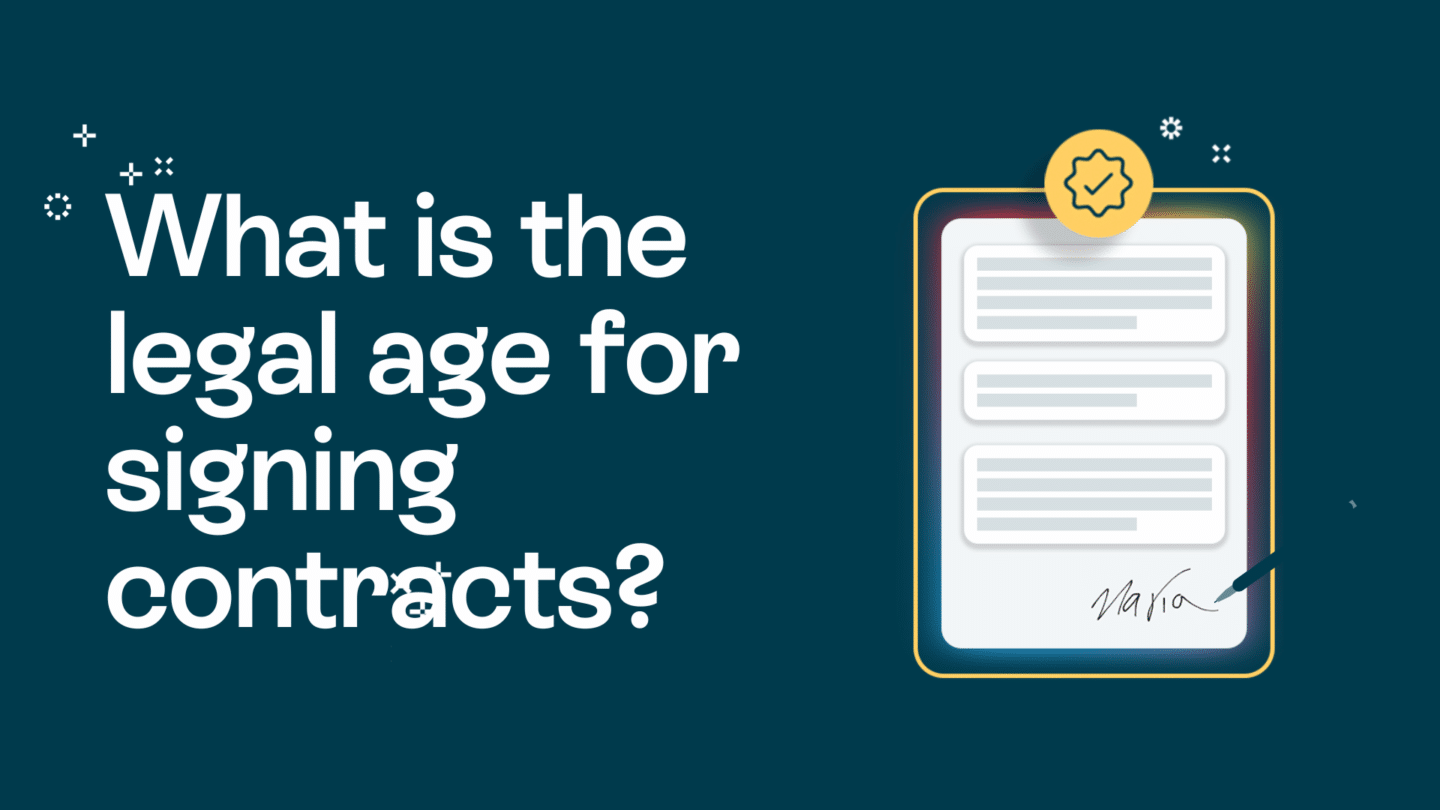Have you ever wondered if there’s an age limit for signing contracts or making legal agreements?
Whether you’re a young entrepreneur, a parent guiding your child, or a business owner dealing with customers, knowing the legal age for signing contracts is crucial. It ensures that everyone involved understands their rights and responsibilities.
Contracts can be tricky, and in this guide, we will break it all down for you. From the rules in different countries to the exceptions that allow minors to sign contracts, we’ve got you covered! Let’s dive in and explore everything you need to know to navigate contracts confidently and responsibly.

What is the legal age to sign a contract?
The legal age to sign a contract refers to the minimum age at which a person is considered capable of entering into a legally enforceable agreement. In most countries, this age is typically set at 18, coinciding with the age of majority. At this age, individuals are presumed to have the maturity and understanding to make informed decisions about legal commitments.
- In the United States, the legal age for signing contracts is 18 in most states. However, some states recognize exceptions for emancipated minors
- In the United Kingdom, the legal age to enter into a contract is also 18, although contracts for essential goods and services may be enforceable for minors
- Internationally, the legal age varies depending on the jurisdiction, but it is generally aligned with the local age of majority
Read also: Is an electronic signature legally binding?
Why does the legal age matter for contracts?
Contracts require all parties to have legal capacity to ensure they understand the rights, responsibilities, and consequences involved. The legal age ensures that individuals have the cognitive maturity to assess risks and obligations.
- Individuals under the legal age may lack the ability to fully comprehend complex contract terms
- Minors are generally protected under the law from being unfairly exploited in contractual agreements
If a person below the legal age signs a contract, the agreement may be void or voidable, meaning it can be canceled by the minor or their legal guardian. This is designed to protect young individuals from being bound by unfair or exploitative terms.
Exceptions to the legal age for signing contracts
While the general rule is that individuals must be 18 or older to sign a contract, there are exceptions. These typically involve contracts for essentials or specific circumstances where minors are deemed capable of entering into agreements.
- Contracts for necessities: Minors can legally enter into contracts for essential items such as food, clothing, shelter, and medical services. These contracts are enforceable to ensure access to vital resources
- Employment contracts: In many jurisdictions, minors are allowed to sign employment contracts, provided the work complies with child labor laws
- Emancipated minors: Emancipated minors, who are legally independent from their parents or guardians, can generally sign contracts as if they were adults
- Educational loans: In some regions, minors may sign contracts for student loans with co-signers
Legal age and enforceability of contracts
For a contract to be legally enforceable, all parties must meet specific requirements, including legal capacity, mutual consent, and a lawful purpose. If one party is under the legal age, the contract may lack enforceability. However, courts sometimes enforce contracts involving minors when:
- The contract benefits the minor (e.g., educational or vocational training)
- The minor has misrepresented their age or already partially fulfilled the contract
Read also: Contract management: All you need to know
What happens if a minor signs a contract?
If a minor signs a contract without falling under an exception, the contract is usually considered voidable. This means the minor or their guardian can cancel the agreement without penalty. However, if the contract is canceled, the minor may be required to return any goods or services received.
- Example: If a minor signs a rental agreement and later decides to void it, they may need to return the rented property or compensate for its use
- Businesses entering into contracts with minors are encouraged to confirm their age to avoid potential legal complications

Ensuring compliance with legal age requirements
To avoid disputes or unenforceable agreements, parties entering into contracts should verify the legal age of all signatories. This is particularly important for businesses engaging with younger customers or employees.
- Age verification: Request identification or documentation proving the individual’s age
- Clear terms: Ensure that the contract terms are understandable, especially if a minor is involved in exceptional cases
- Parental consent: For contracts involving minors, obtaining parental or guardian consent can help solidify enforceability
Conclusion: Understanding the legal age for signing contracts
Knowing the legal age for signing contracts is critical to ensuring that agreements are valid and enforceable. It protects both minors and businesses from misunderstandings or unfair practices. By understanding the legal framework surrounding contracts, individuals and organizations can navigate agreements responsibly and ethically.
Whether you’re entering a business deal, hiring a young worker, or considering an agreement involving a minor, adhering to legal age requirements safeguards everyone involved. This knowledge fosters transparency, fairness, and trust in all contractual relationships.









